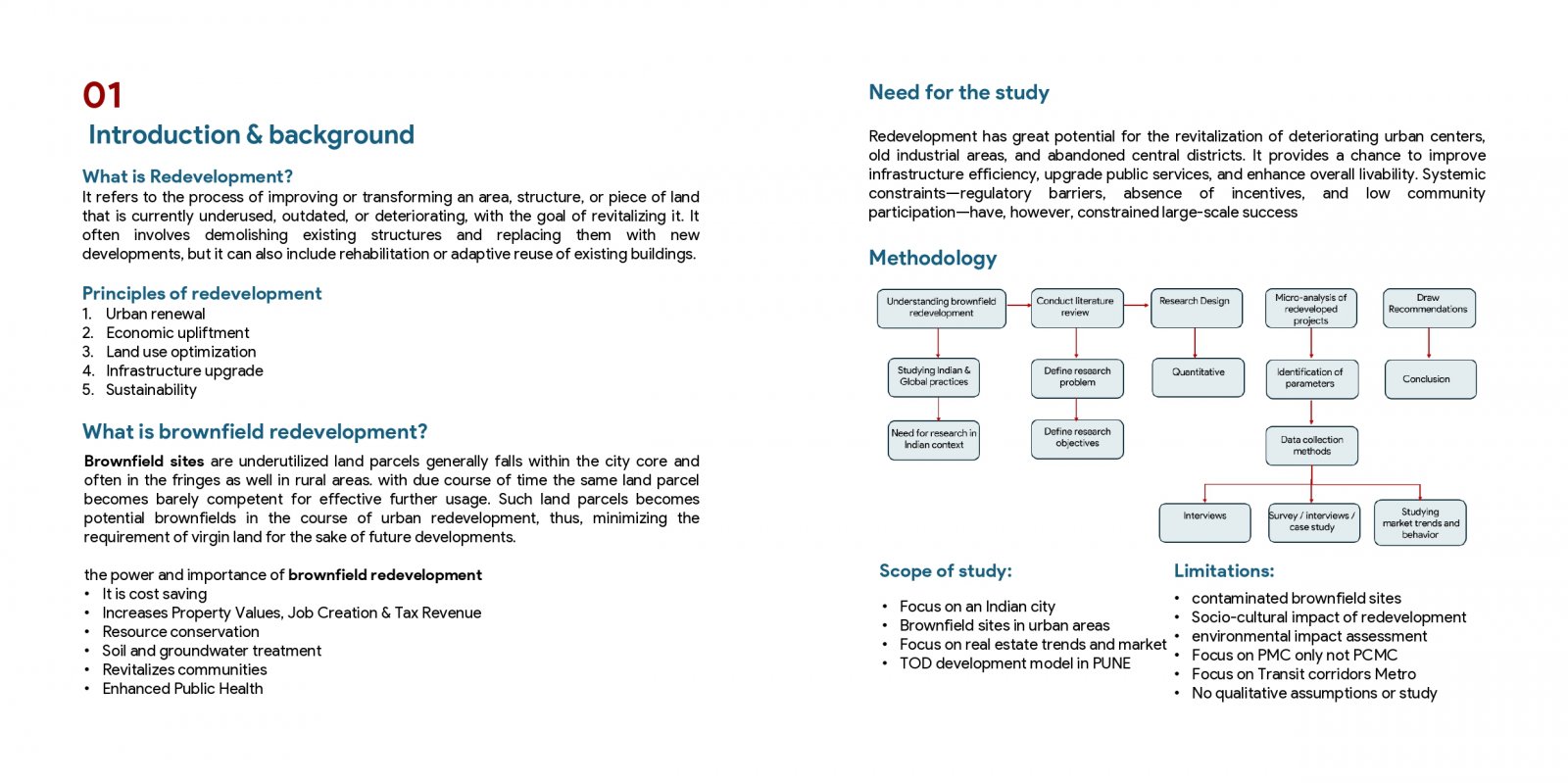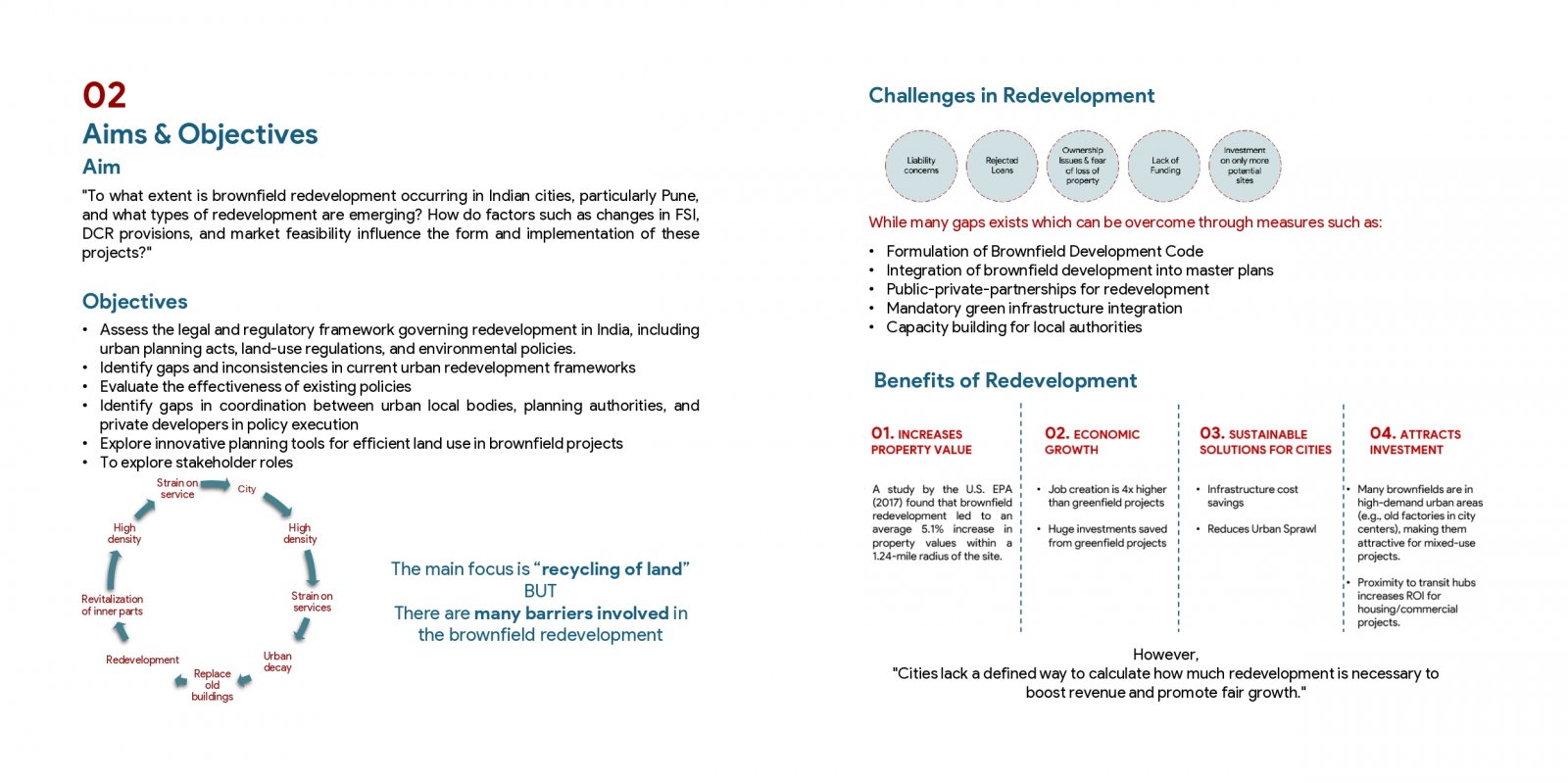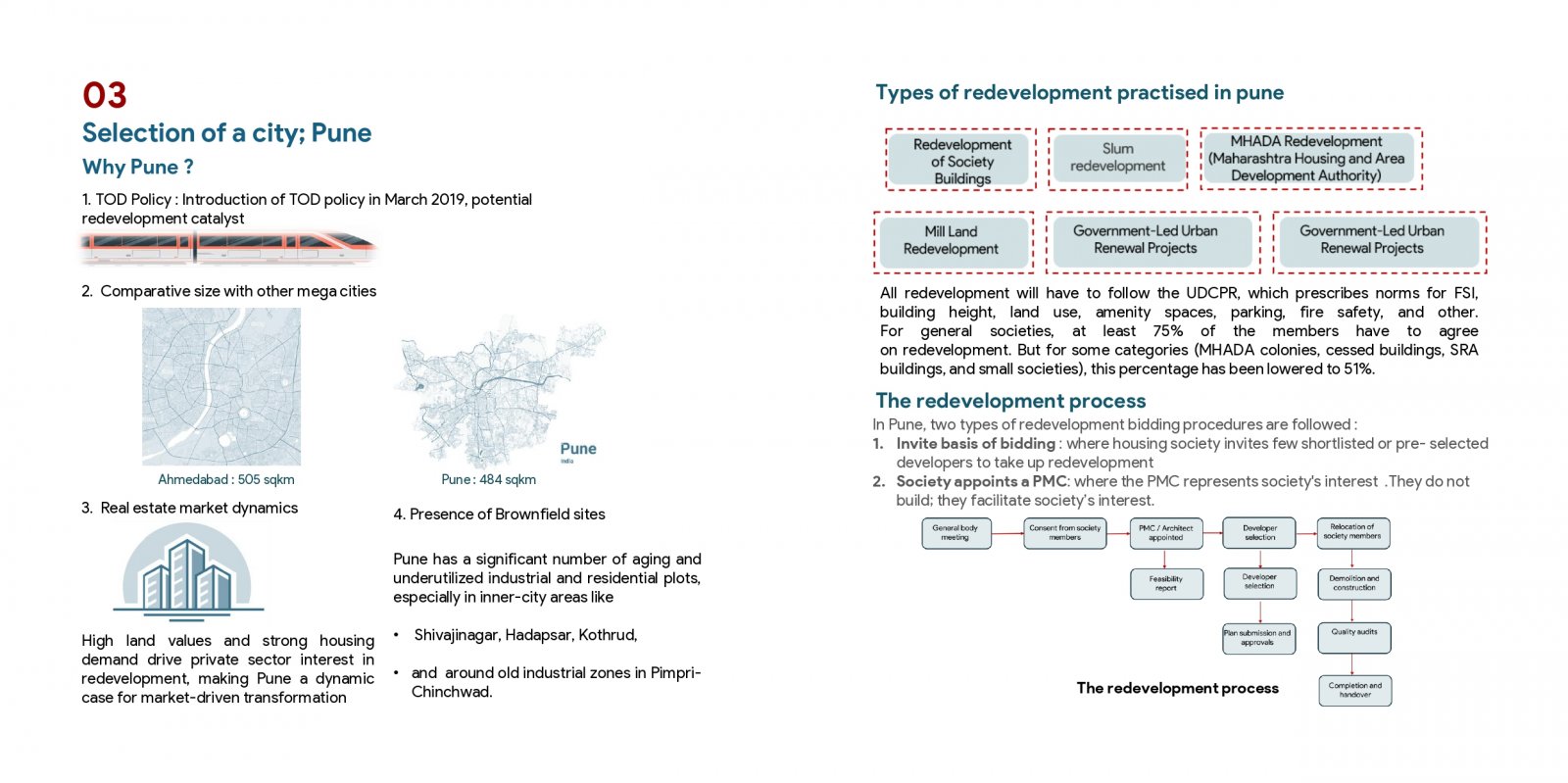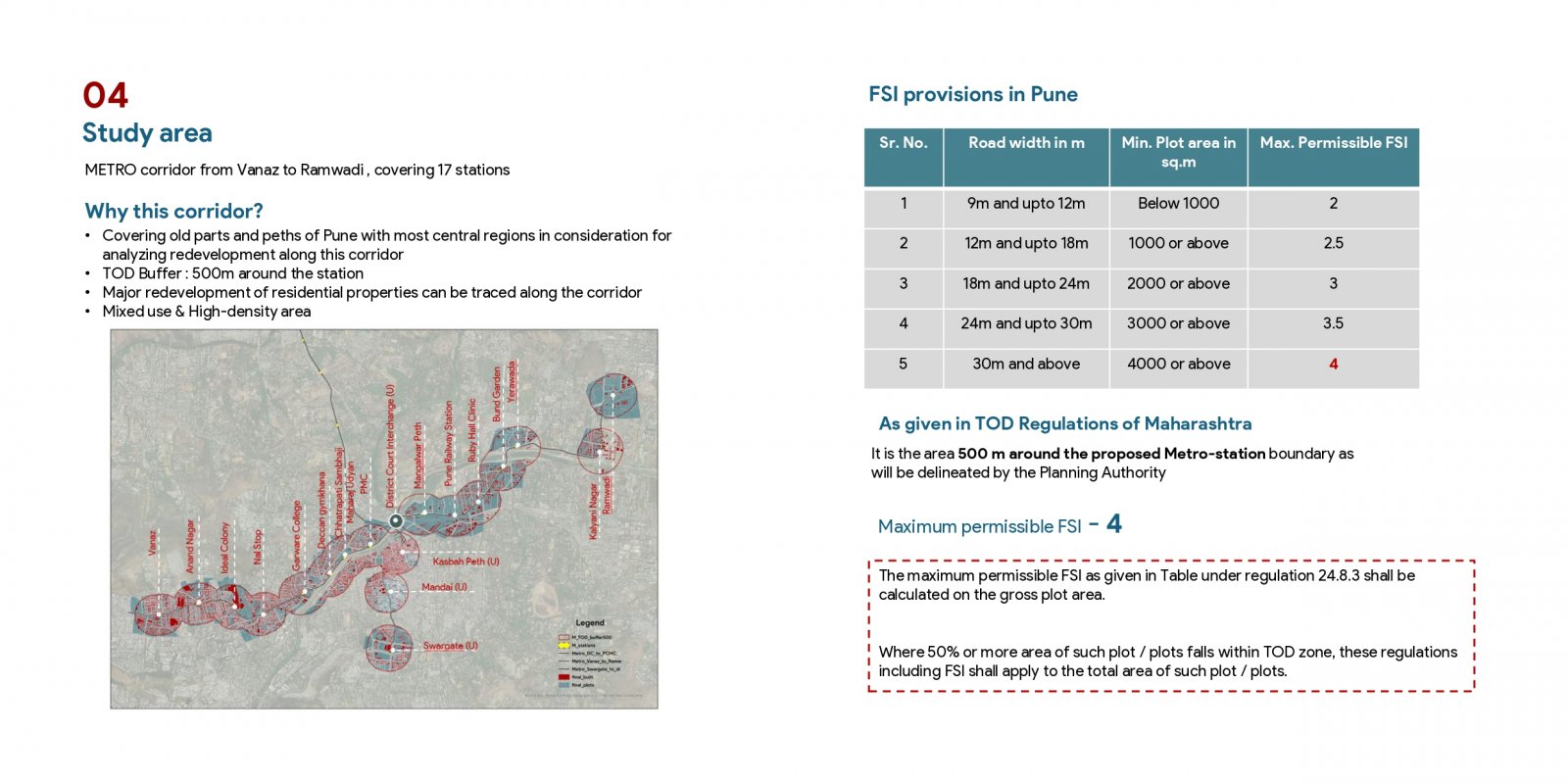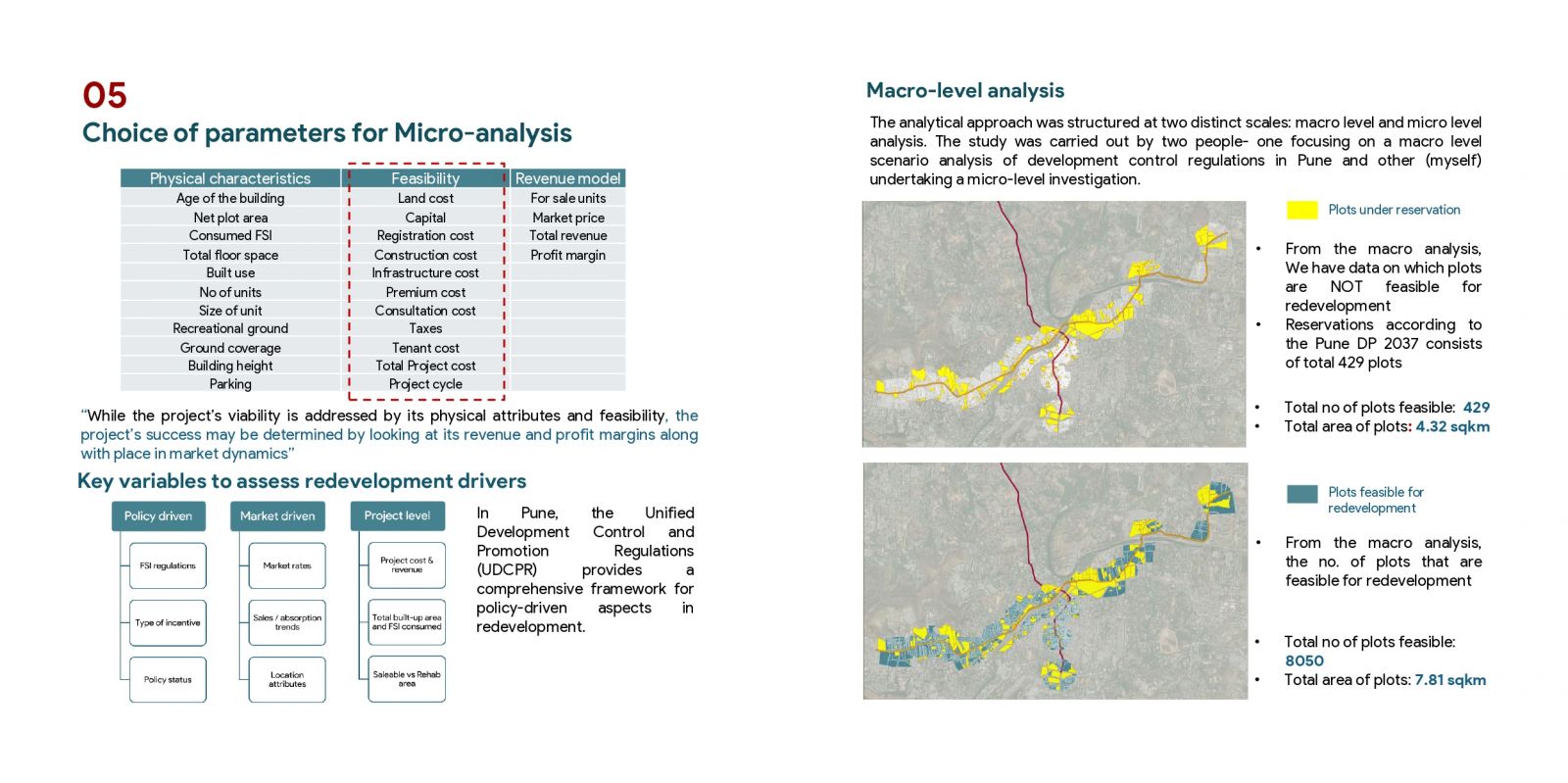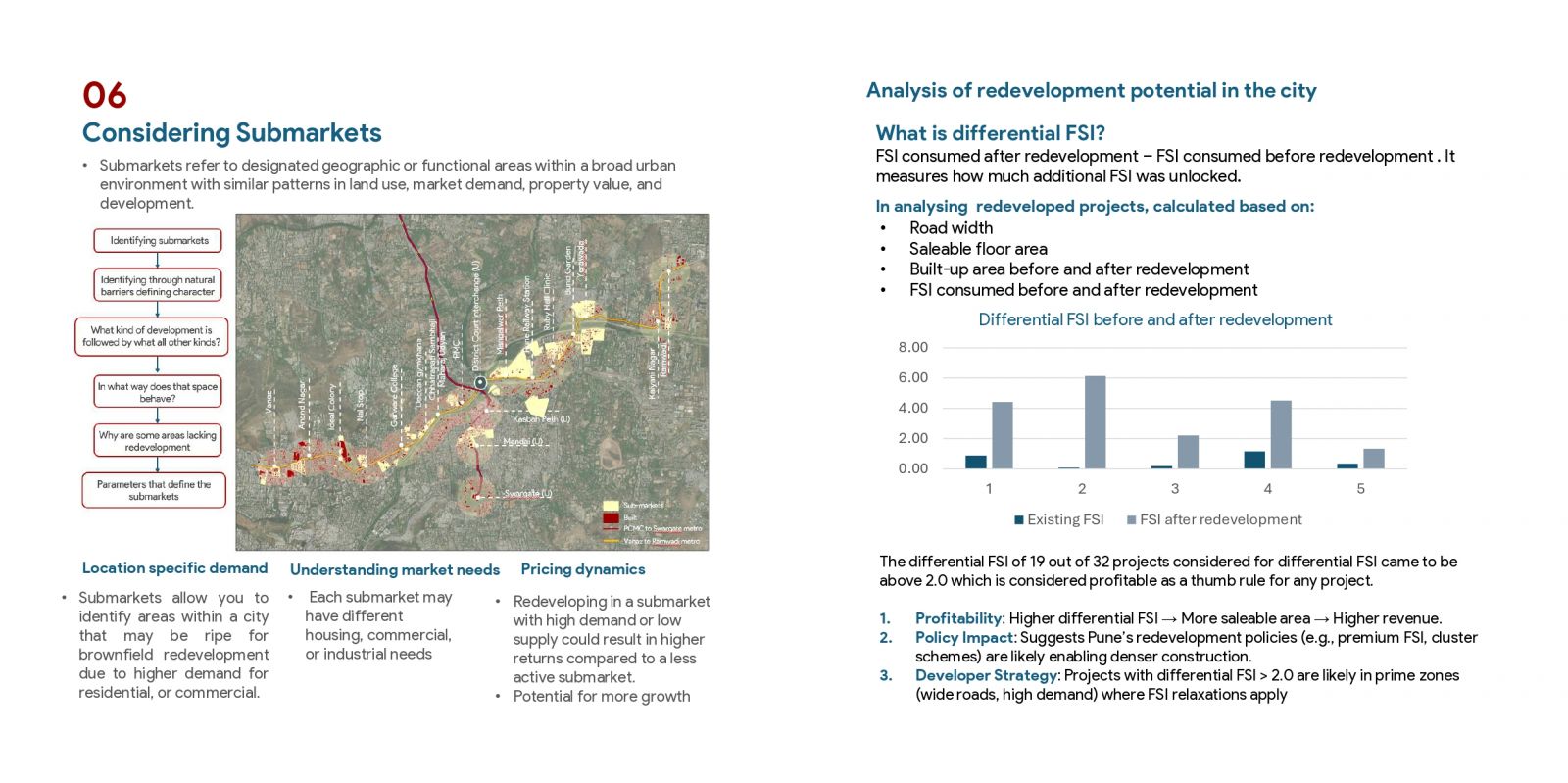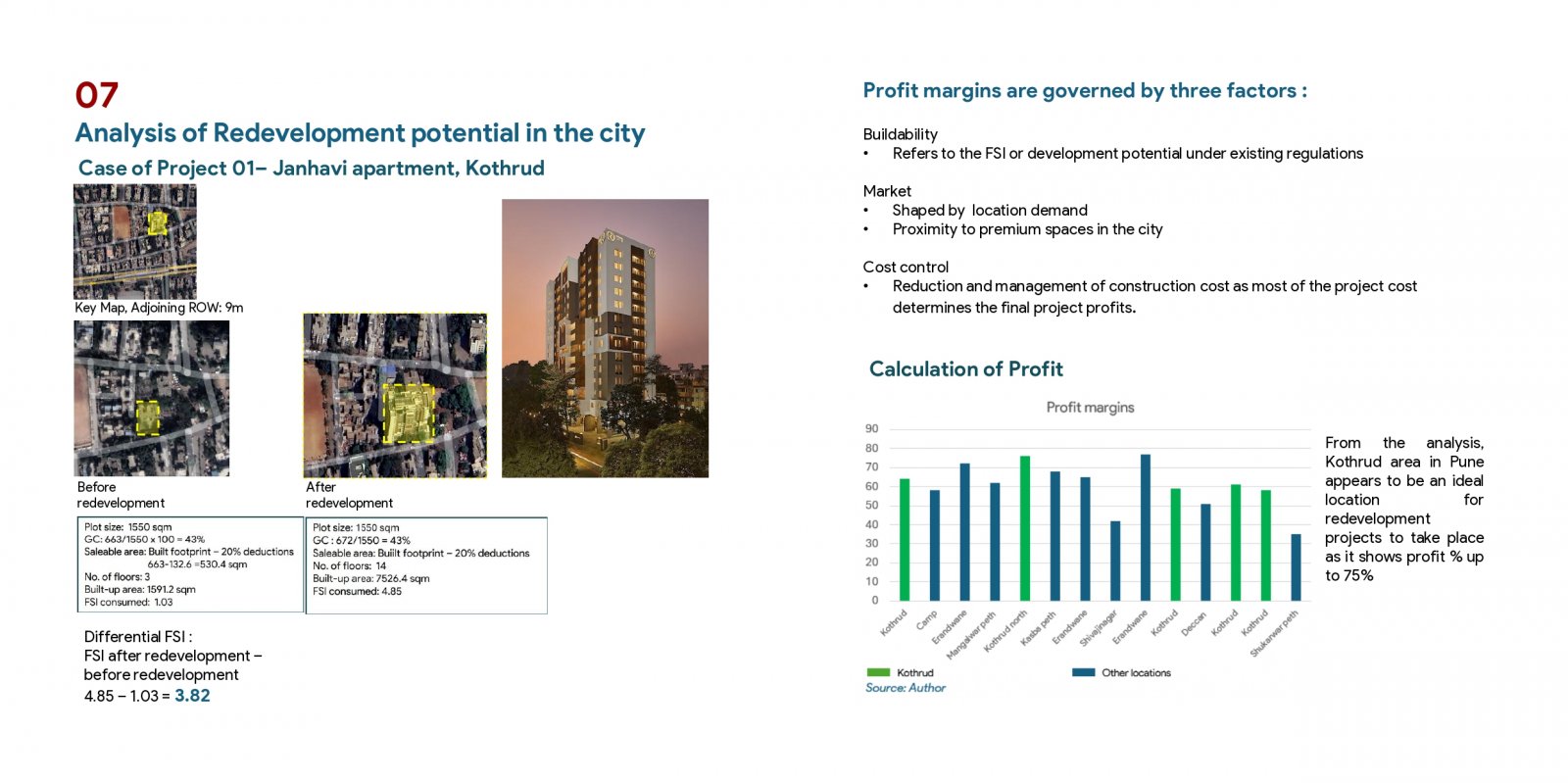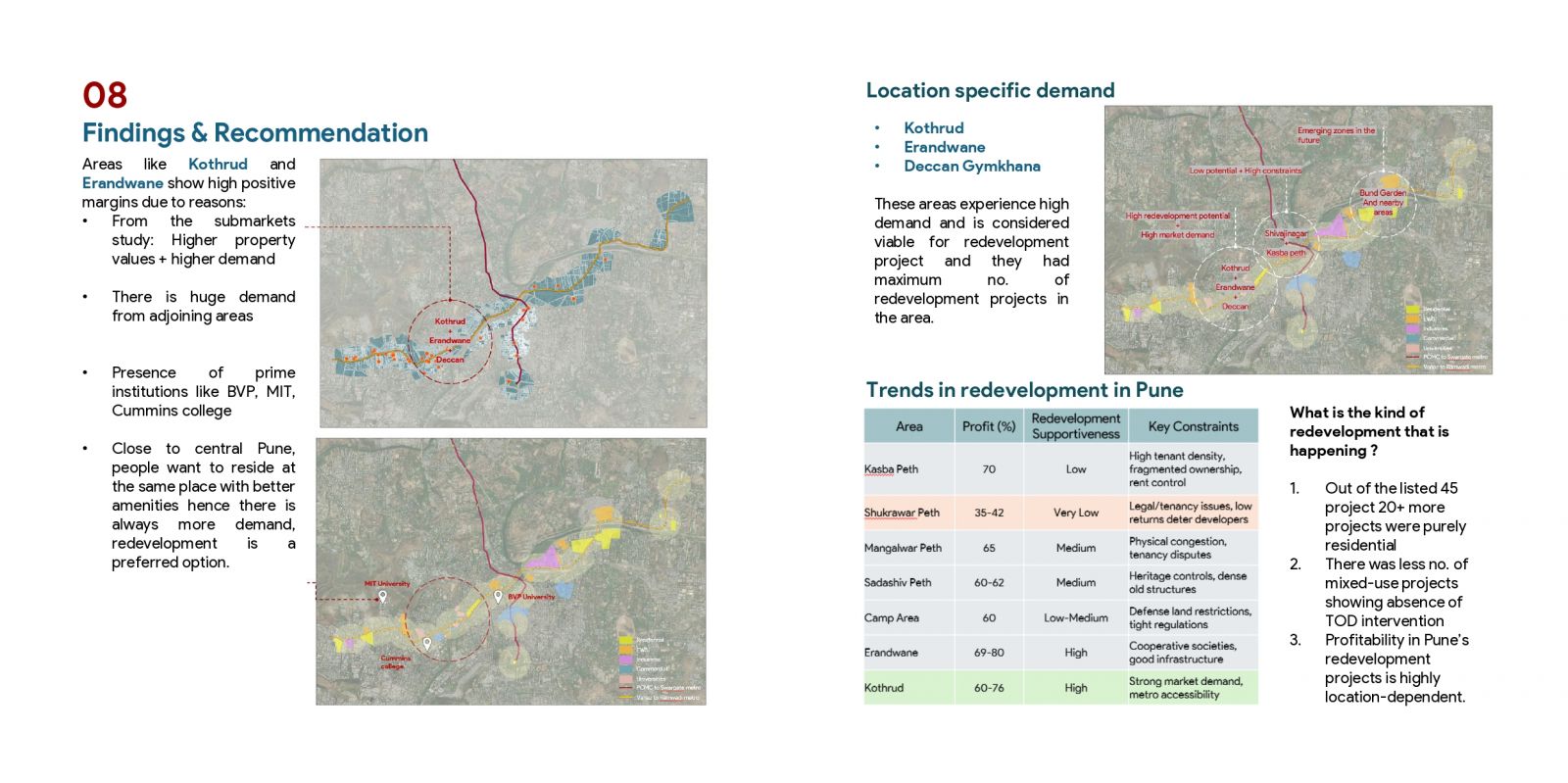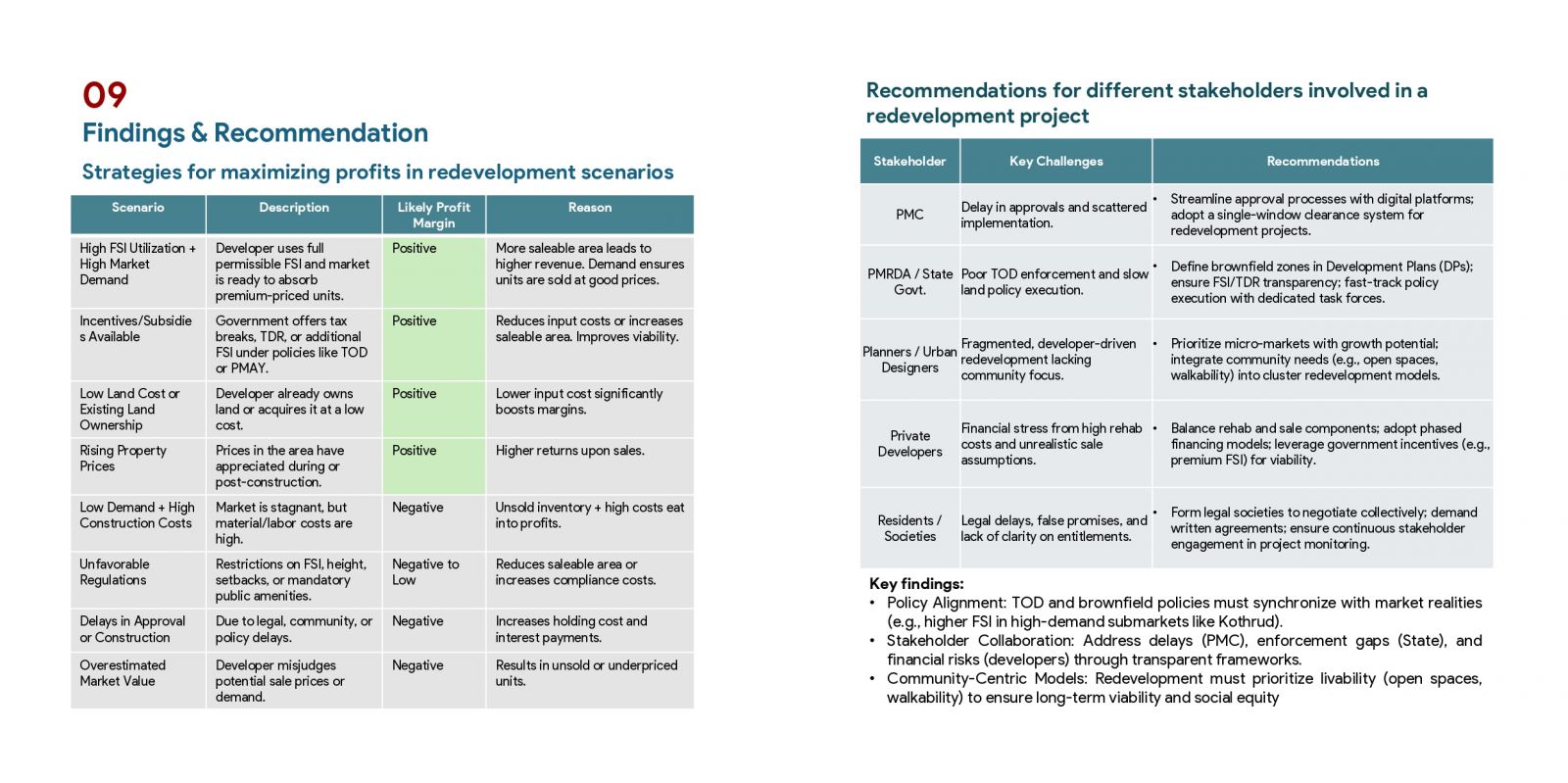Your browser is out-of-date!
For a richer surfing experience on our website, please update your browser. Update my browser now!
For a richer surfing experience on our website, please update your browser. Update my browser now!
This study investigates the potential of unlocking brownfield redevelopment in Indian cities, with a focus on the city of Pune, Maharashtra. Pune’s fast growing urban footprint, coupled with the recent development of metro corridors and presence of old industrial estates and underutilized government lands, positions it as a city facing both high redevelopment need and opportunity. Through literature review, policy analysis and stakeholder insights, this report identifies the key institutional, regulatory, and financial barriers as well as the ongoing status of redevelopment and its alignment with the TOD policies. This research is focused on identifying the factors affecting feasibility and success of the redevelopment projects at a micro level considering individual redevelopment projects in Pune. Without timely intervention in looking towards the redevelopment the city risks into experiencing urban sprawl, deepening socio spatial inequalities and missing the opportunity to recycle valuable city land efficiently. The end product of this study would be policy interventions and recommendations for incentivizing and enhancing the approach to redevelopment in the case of Pune.
